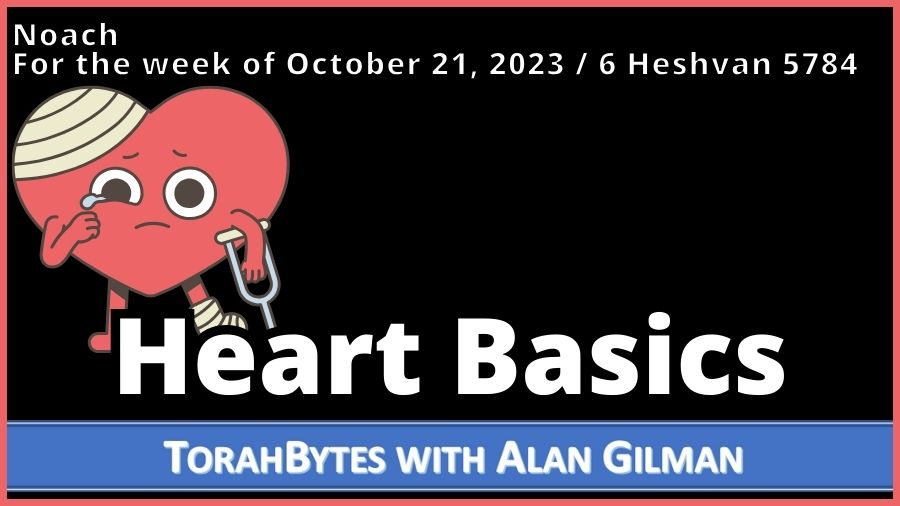For the week of October 21, 2023 / 6 Heshvan 5784

Noach
Torah: Bereshit/Genesis 6:9 – 11:32
Haftarah: Isaiah 54:1 – 55:5
Then Noah built an altar to the LORD and took some of every clean animal and some of every clean bird and offered burnt offerings on the altar. And when the LORD smelled the pleasing aroma, the LORD said in his heart, “I will never again curse the ground because of man, for the intention of man’s heart is evil from his youth. Neither will I ever again strike down every living creature as I have done. (Bereshit/Genesis 8:20-21)
When my wife, Robin, tells the story of how she came to trust in Yeshua as the Messiah, she explains that it occurred in stages over a period of time. A key encounter she had was during a phone conversation with her best friend, who was her primary help in navigating this. At some point the issue of capital punishment came up, something that Robin didn’t believe in. When her friend found out that Robin didn’t believe in capital punishment, and inquired why, Robin responded, “Because man is basically good.” Her friend questioned her, “Do you think you’re basically good?” “Yes”, Robin replied. “Do you think you’re basically good?” she asked back. Her friend said, “No. I am a sinner.” Robin was surprised at this response, as her friend was the “good-est” person she knew. But her friend explained the biblical concept of sin and its effects on human nature.
Robin’s view of self at that time is the view held by most people today. Through the past several decades, we have been taught to admire ourselves and trust in our personal moral compass (as if we have one). This is quite different from the prophet Jeremiah’s statement, “The heart is deceitful above all things, and desperately sick; who can understand it?” (Jeremiah 17:9). Jeremiah was much more in line with God’s assessment of human nature as expressed in this week’s parsha (weekly Torah portion). After God reset his creation project through Noah, his assessment of the inclination of the human heart was like that from before the flood. Even though God was determined to continue his creation project, he declared, “the intention of man’s heart is evil from his youth” (Bereshit/Genesis 8:21).
The current crisis in Israel instigated by Hamas on October 7 is an extreme example of the evil intentions of the human heart. While there’s certainly a place to examine the particular motives of the “Islamic Resistance Movement,” the Arabic of which “Hamas” is an acronym, as well as questions over Israel’s response, this week parsha calls each of us to look at our own hearts.
It’s tempting to distance ourselves from “the bad guys,” as if we are morally superior. But do we have that right? Perhaps it was with a personal righteous air that Yeshua was asked about the gruesome murders the Roman governor committed against some Galileans in the middle of a religious exercise (See Luke 13:1-5). They must have been shocked and offended by his directing the issue back at them.
Do you think that these Galileans were worse sinners than all the other Galileans, because they suffered in this way? No, I tell you; but unless you repent, you will all likewise perish. Or those eighteen on whom the tower in Siloam fell and killed them: do you think that they were worse offenders than all the others who lived in Jerusalem? No, I tell you; but unless you repent, you will all likewise perish.
This is not to say that it isn’t right to grapple with justice issues. It’s that Yeshua knew that it was more important at this moment to help these people face the truth of their own sinfulness.
It’s not cool in our day to focus on negatives. However, the great solutions to human problems provided by God in the Scriptures cannot be realized without first accepting that all human beings have this same basic problem.
I fully support the need for Israel to enact justice upon the perpetrators of the attack on the south of Israel last week. I grieve over the loss of life on both sides. I am so grateful for the expressions of support I have heard and read about, not to mention the personal ones I have received. But let’s not forget that there is something much bigger and more personal for all of us here. The great evil that was unleashed and the tragic gruesomeness of war are manifestations of inclinations that dwell in all our hearts. I am in no way saying that everyone will necessarily commit such atrocities. However, have we ever stopped to think of how destructive our sins really are? “Oh, I didn’t mean that!” we say. “I wasn’t thinking! we say.” Here’s a good one: “I forgot.” And those are “nice” ones. How about, “Daddy didn’t mean to hurt you, dear!” You and I know the depths of evil we humans can stoop to, if we are honest.
Don’t get me wrong. I don’t believe that all sin is equal as some misunderstand James 2:10, which I don’t have time to get into now. There are different consequences for different sins. Yet, at the same time, all sin is rooted in the same basic human nature—a nature if left to itself will destroy us and others.
Therefore, as we pray for the current situation, looking to God for justice and (hopefully) mercy, let’s not forget to examine our own hearts. If we do, then we might better appreciate the sacrifice God has made through the Messiah on our behalf.
Scriptures taken from the English Standard Version
Thank you for this – well said and very helpful! (I’m interested to learn more about not “all sins being equal” though, and different consequences for different sins. Perhaps a future post or podcast. 🙂 )